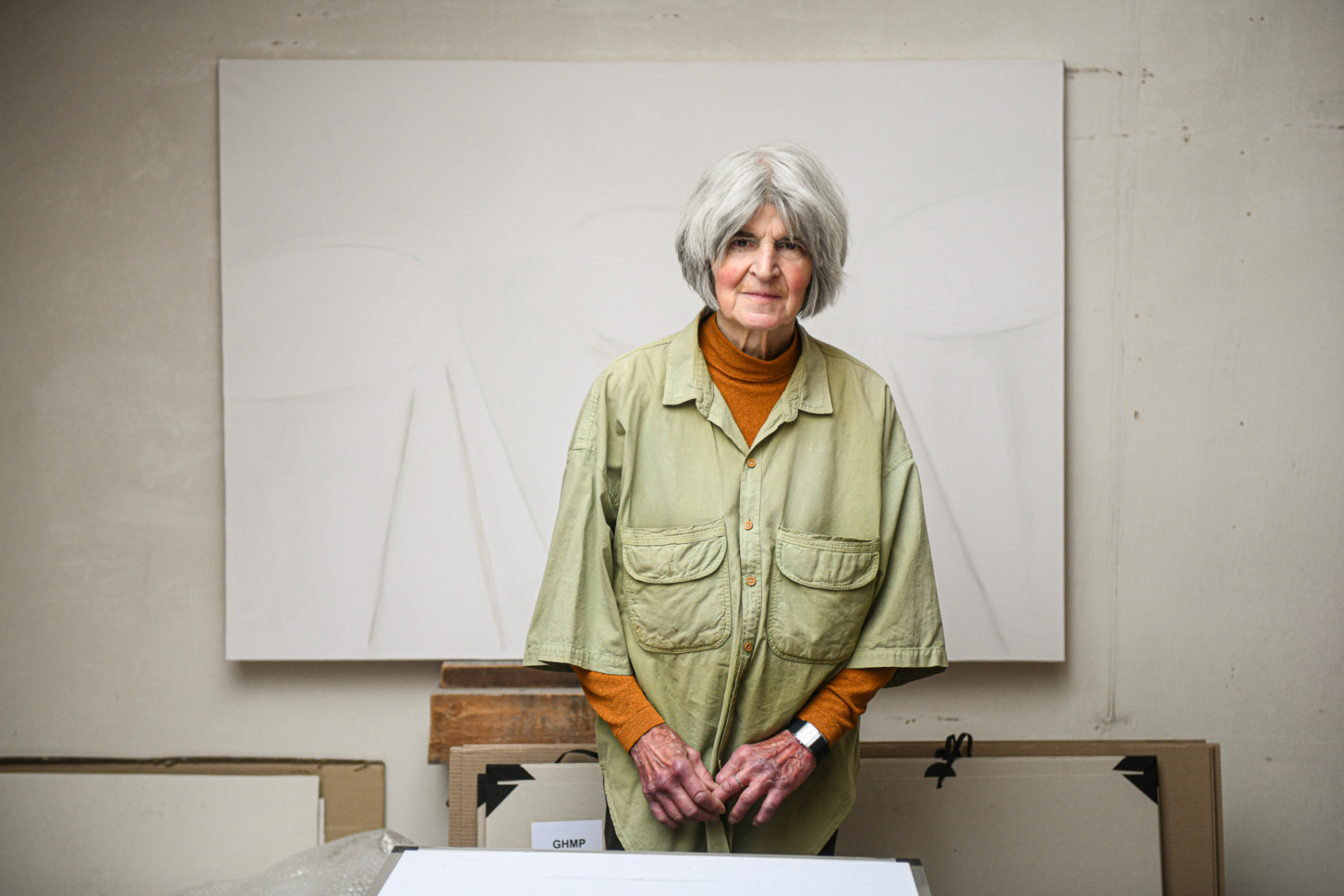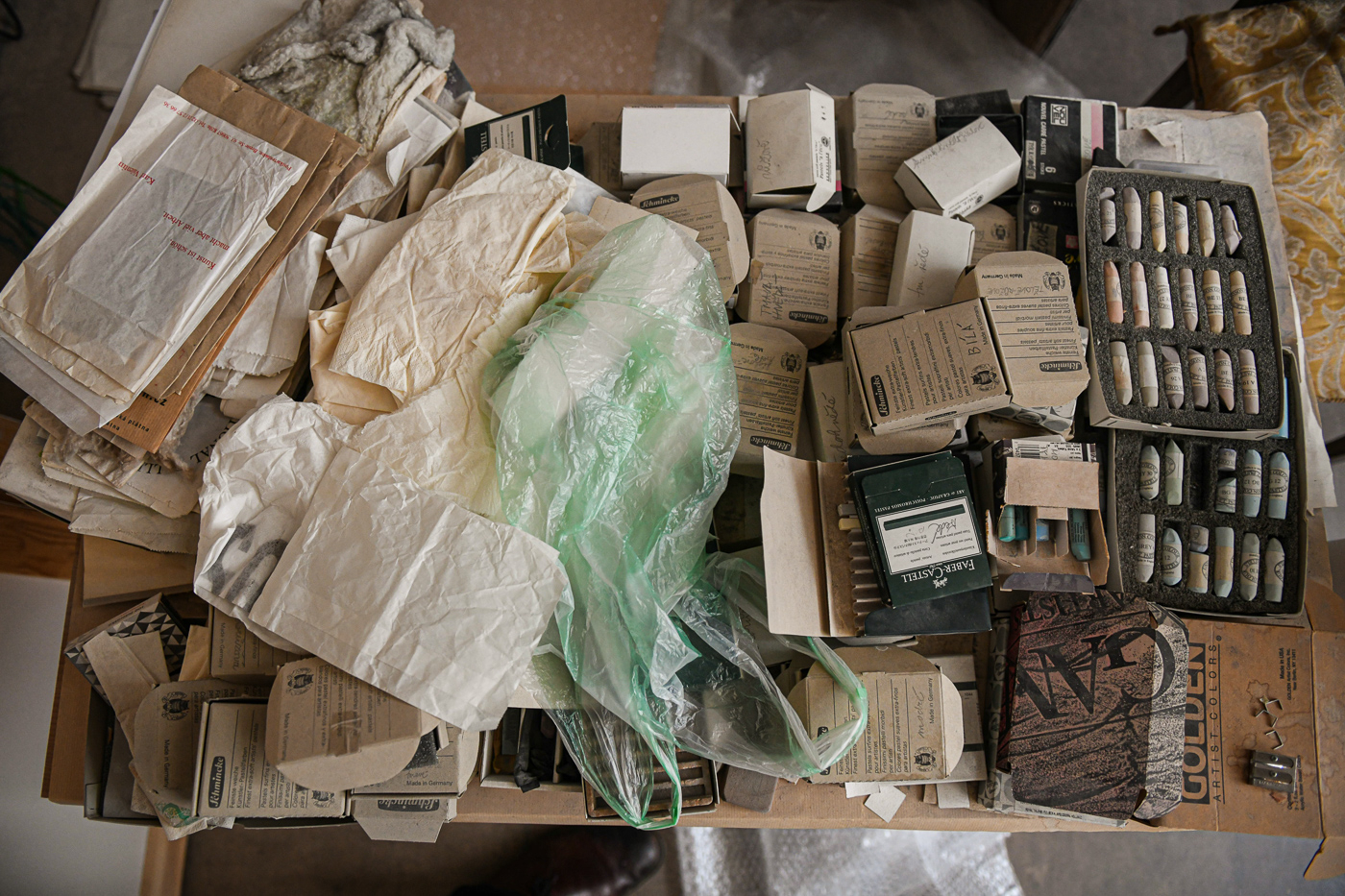Undistracted by the Riches of the World Hana Hlaváčková
Depth, not breadth, is the method Jitka Svobodová uses in her work, notes art historian Hana Hlaváčková.
One can consider oneself truly lucky if one has the opportunity to see almost the entirety of Jitka Svobodová’s work together in one place. This vast body of work is – in its diversity – very complex. The changes in it, whether in the technique used (there are not many of them) or in its transformations, from the natural to objects made by the human hand, from paper and textile surfaces to the elements and cosmic phenomena, are never random or triggered by an external stimulus alone. They represent a gradual exploration of our world, our living environment, and they evolve only within the framework of this fundamental issue. Permeating everything is the artist’s probing gaze, with the same laconic question: what does this thing, this phenomenon, mean? What is the thing in itself? The artist does not explore the environment of our life as a whole, aware of its complexity. She explores it in confrontation with each individual thing she encounters. Over and over again she makes a drawing of a hose, a pillow, a curtain, a tablecloth, thin tree trunks. Jitka Svobodová expressed herself through painting only initially, during her studies at the Academy of Fine Arts and shortly afterwards. Even then, however, her colours did not tend towards the illusory, their condensed earthiness creating something other: an unbounded materiality. Already here, the tendency to paint not the illusory visual reality, but only those of its qualities that are actually unrepresentable, becomes apparent. From the rocky ground, embryonic faces emerge only furtively, as if during the creation of the world. Soon, however, colours disappear completely and the artist works only with drawing with which she is able to express everything she is interested in: objects, whose special properties she explores: their heft, flatness, flexibility, but also their hollowness and emptiness. She has permanently devoted herself to some of these qualities, and they feature in her most recent paintings with textiles and fabrics.
In 1978, Jitka Svobodová had an exhibition in Český Těšín. I wrote the text for the catalogue and my colleague Pavel Zatloukal wrote the text for the exhibition itself. I was very surprised that Zatloukal mentioned in his text something that he had discovered and which I had not noticed: he sensed obstacles, inhibitions in communication that I could not discover myself because they were also my own obstacles, my own inhibitions, through which I struggle with the world, and therefore seemed quite natural to me. But these inhibitions are also obstacles that prevent the author from being distracted by the perceptual richness of the world and lead to a deep focus on a particular detail and, at the same time, a particular aspect of it through which the world can be recognised more deeply. Depth, not breadth, is the method Jitka Svobodová uses in her work. However, there is another, somewhat surprising line in the artist’s work, which complements the pictures drawn. These are objects, again minimalistically formed only of wire and paper matter. But the theme of these objects is completely different: the sun, the wind (trees in the wind), fire (candles). Thus, again, the unrepresentable but fundamentally quite different world of elements, through which she reveals a different aspect of existence. Jitka thinks through images while exploring her place in the world through them. She explores the full virtue (arete) of individual objects not in their functionality, but as things in themselves. In agreement with this, she reduces space from infinity to the Aristotelian place of things. Even empty space is elaborated with subtle drawing (the coiled hose, the hollowness of vessels). The materiality of her first paintings is thematised again in her most recent works, where the weight of the stone that makes up the primordial world is transformed into a light, soft drapery that simultaneously envelops and conceals. Jitka Svobodová’s work is the subject of an interesting and comprehensive publication prepared with great insight by Karel Srp last year, which also includes short essays by other authors. Jitka Svobodová’s work, although simple at first glance, is in fact a philosophical treatise. It therefore requires focused attention, but it enriches us greatly.


